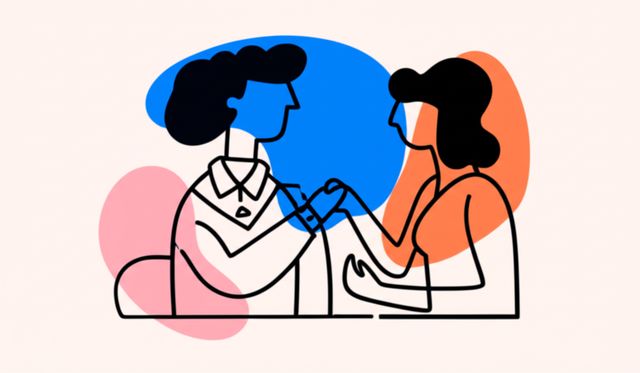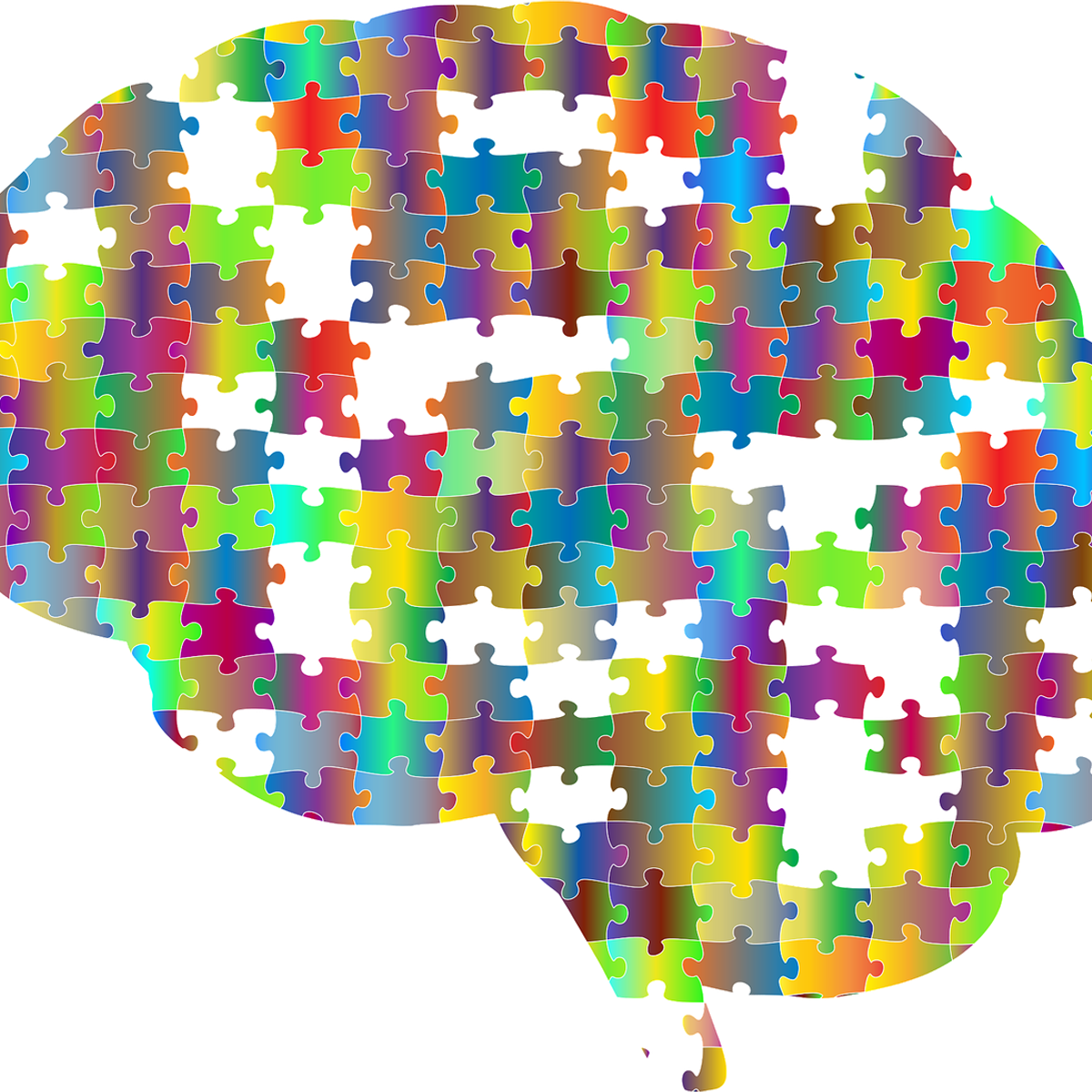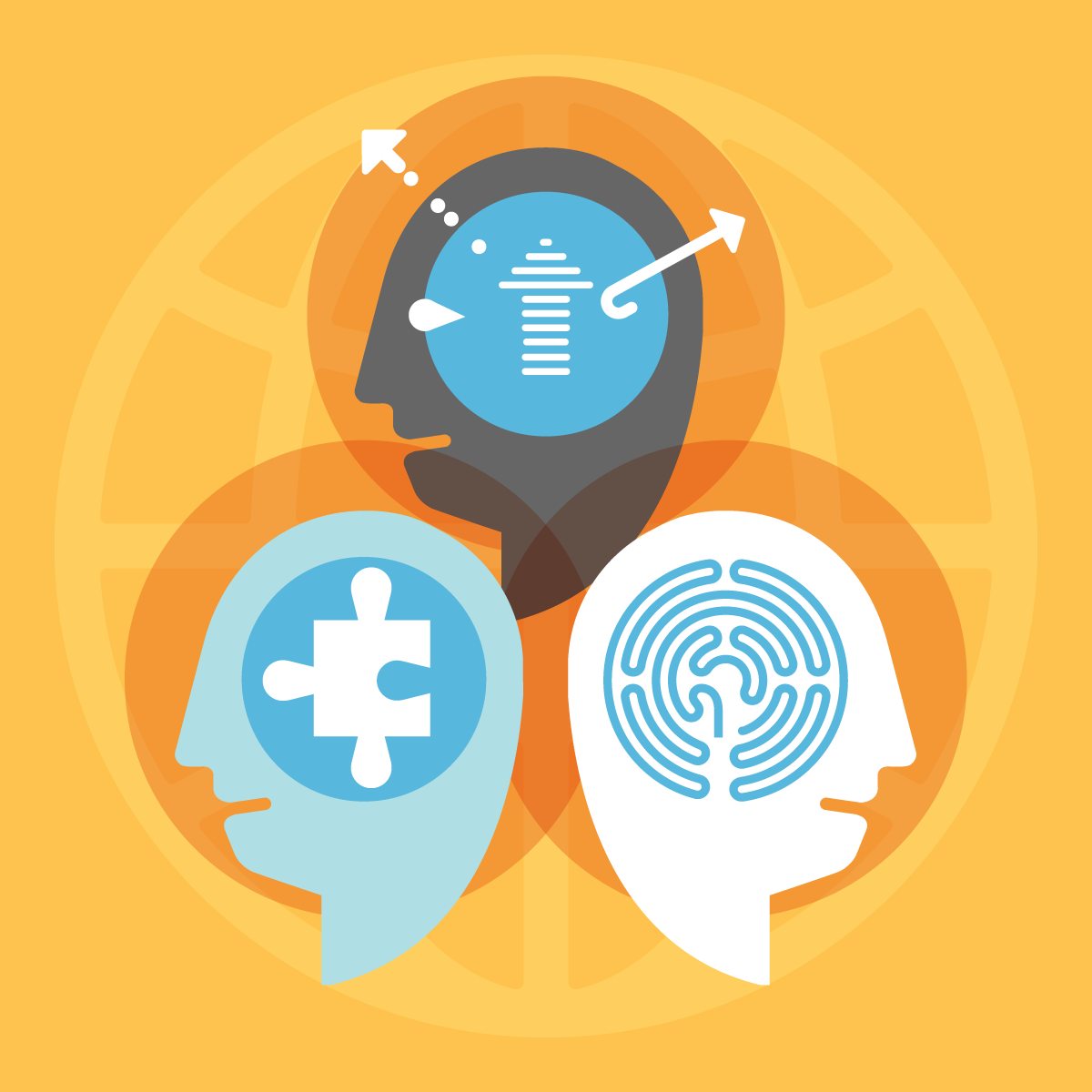Mental Health Counselor
A Career in Mental Health Counseling
Mental Health Counselors are trained professionals who help individuals, couples, families, and groups navigate a wide array of emotional, behavioral, and psychological challenges. They work to promote mental wellness, address mental health conditions like depression and anxiety, and support people through difficult life transitions or experiences such as grief or trauma. This field blends psychological theory with practical, person-centered strategies to foster resilience and positive change.
Working as a Mental Health Counselor can be deeply rewarding. It offers the chance to make a tangible difference in people's lives, guiding them towards healing and self-discovery. The work is intellectually stimulating, requiring ongoing learning and adaptation. It also provides opportunities to specialize in areas like addiction, trauma, or family dynamics, catering to diverse interests within the field.
Roles and Responsibilities of a Mental Health Counselor
Day-to-Day Work: Helping and Healing
The daily tasks of a Mental Health Counselor are varied and client-focused. A significant portion of their time involves direct client interaction through therapy sessions. This includes conducting initial assessments to understand a client's history, challenges, and goals. Based on this assessment, counselors develop tailored treatment plans, often using evidence-based approaches like Cognitive Behavioral Therapy (CBT) or Dialectical Behavior Therapy (DBT).
Counselors guide clients through therapeutic processes, helping them explore thoughts, feelings, and behaviors. They teach coping strategies, communication skills, and problem-solving techniques. Documentation is also crucial; counselors meticulously maintain progress notes, treatment plans, and other records in compliance with legal and ethical standards.
Beyond individual sessions, counselors might lead group therapy, conduct workshops, or engage in crisis intervention when clients face acute distress. Collaboration with other professionals, like psychiatrists, doctors, or social workers, is common to ensure comprehensive care. They might also refer clients to community resources or support groups.
These courses offer insights into therapeutic communication and understanding client needs, which are central to a counselor's daily work.
Distinguishing Counselors from Related Professionals
The mental health field includes various professionals, each with distinct roles. Mental Health Counselors typically hold a Master's degree in counseling and focus on psychotherapy and practical coping strategies. They help clients address emotional, behavioral, and mental health issues, often focusing on wellness and personal growth.
Psychologists usually have a doctoral degree (Ph.D. or Psy.D.) and can conduct psychological testing, research, and psychotherapy. Their training often involves a deeper focus on psychological theory and research methods. While both counsel, psychologists may handle more severe mental illnesses and conduct formal assessments.
Psychiatrists are medical doctors (MDs) who specialize in mental health. They can diagnose mental illnesses, provide therapy, and prescribe medication. Their medical training uniquely positions them to understand the interplay between physical and mental health and manage psychotropic medications.
Licensed Clinical Social Workers (LCSWs) hold a Master's degree in Social Work (MSW) and provide counseling, case management, and advocacy. They often focus on connecting clients with social services and addressing environmental factors impacting mental health. While they provide therapy like counselors, their scope can be broader, encompassing social systems and advocacy.
These courses provide an introduction to the broader field of psychology.
Understanding the nuances of psychological assessment is important. These books provide foundational knowledge relevant to the diagnostic aspects often discussed in relation to different mental health roles.
Areas of Specialization
Mental Health Counselors can specialize in various areas, allowing them to focus their practice on specific populations or issues. Common specializations include addiction counseling, helping individuals overcome substance use disorders or behavioral addictions like gambling. Another major area is trauma counseling, assisting clients who have experienced traumatic events using specialized approaches like EMDR or Trauma-Focused CBT.
Marriage and family therapy focuses on relationship dynamics within couples and families, addressing communication problems, conflict resolution, and systemic issues. Child and adolescent counseling involves working with young people on developmental, emotional, or behavioral challenges, often collaborating with parents and schools.
Other specializations include school counseling (supporting students' academic and personal development), career counseling, grief counseling, rehabilitation counseling (helping individuals with disabilities), and gerontological counseling (working with older adults). Choosing a specialization often involves additional training, certification, and supervised experience.
These courses delve into specific therapeutic modalities and populations often encountered in specialized counseling practice.
These books offer in-depth perspectives on trauma, a common and critical specialization within mental health counseling.
Formal Education Pathways
Building the Foundation: Undergraduate Studies
A bachelor's degree is the first step toward becoming a Mental Health Counselor. While a specific major is not always mandatory for graduate school admission, degrees in psychology, sociology, social work, or related fields are highly beneficial. These programs provide foundational knowledge about human behavior, social structures, research methods, and psychological principles.
Coursework in areas like developmental psychology, abnormal psychology, social psychology, statistics, and research methods helps build a strong base. Gaining volunteer or work experience in human services or mental health settings during undergraduate studies can also strengthen graduate school applications and provide valuable real-world exposure.
Consider exploring introductory psychology courses available online to get a feel for the subject matter. Platforms like OpenCourser list numerous options from various universities, allowing prospective students to sample the field before committing to a full degree program.
These courses provide a grounding in understanding psychological conditions.
Mastering the Craft: Graduate Education
A master's degree is typically required for licensure as a Mental Health Counselor. Most states mandate a degree specifically in counseling or a closely related field, often requiring 60 semester hours (or 90 quarter hours) of graduate study. Programs cover core areas like counseling theory, ethics, assessment, diagnosis (using frameworks like the DSM-5), group counseling, human growth and development, career development, and research methods.
A crucial part of graduate training is supervised clinical experience. This usually involves a practicum (initial supervised practice) followed by an internship (a more intensive, longer-term placement). These experiences allow students to apply theoretical knowledge in real-world settings under the guidance of licensed professionals, accumulating hundreds of hours of direct client contact and supervision.
Accreditation is vital. The Council for Accreditation of Counseling and Related Educational Programs (CACREP) is the primary accrediting body. Graduating from a CACREP-accredited program ensures the curriculum meets high professional standards and often streamlines the licensure process in many states. Some states explicitly require a degree from a CACREP-accredited program for licensure eligibility.
These courses offer specialized training relevant to counseling practice.
Achieving Licensure: The Final Steps
After completing a master's degree, the path to independent practice involves obtaining state licensure. This typically requires passing a state-recognized licensing examination, such as the National Counselor Examination (NCE) or the National Clinical Mental Health Counseling Examination (NCMHCE), administered by the National Board for Certified Counselors (NBCC).
Candidates must also complete a period of supervised postgraduate clinical experience. Most states require around 2,000 to 3,000 hours of supervised practice, accumulated over approximately two years post-master's. This includes a specified number of direct client contact hours and hours under the direct supervision of an approved licensed supervisor.
Licensure requirements vary significantly by state regarding specific coursework, required exams, supervision hours, and supervisor qualifications. Titles for licensed counselors also differ (e.g., LPC, LMHC, LPCC, LCPC). Prospective counselors must research the specific requirements of the state(s) where they intend to practice. Maintaining licensure requires ongoing continuing education credits annually or biennially.
Online and Alternative Training Options
Augmenting Skills with Online Certifications
While a master's degree and licensure are essential for practicing as a Mental Health Counselor, online courses and certifications offer valuable ways to supplement education and enhance specific skills. Professionals can pursue specialized training in therapeutic modalities like Cognitive Behavioral Therapy (CBT), Dialectical Behavior Therapy (DBT), or Acceptance and Commitment Therapy (ACT).
Certifications in areas like Trauma-Informed Care, grief counseling, or specific assessment tools can deepen expertise and make counselors more versatile. These online options provide flexibility for working professionals seeking to expand their toolkit without committing to another full degree program. They can also be useful for students wishing to explore specific interests alongside their formal coursework.
OpenCourser features a wide range of psychology and counseling courses, making it easier to find targeted training. Learners can use the platform's search and filtering tools to identify courses focusing on specific therapeutic approaches or client populations. You can even save courses to your personal list for later review.
These courses provide focused training in specific, widely-used therapeutic approaches.
These books delve into specific therapeutic modalities often covered in certification programs.
Micro-Credentials for Niche Expertise
Beyond broader certifications, micro-credentials and shorter online courses allow counselors to develop expertise in highly specific niche areas. This could include working with particular demographics (e.g., LGBTQ+ individuals, veterans, specific cultural groups), addressing unique issues (e.g., perinatal mental health, eating disorders, performance anxiety), or learning specialized techniques.
These focused trainings can help counselors differentiate their practice and better serve specific community needs. They often require less time commitment than full certification programs, making them accessible options for continuous professional development. Platforms often categorize these under specialized topic areas within Health & Medicine or Personal Development.
Completing such courses can demonstrate commitment to ongoing learning and specialized competence to potential employers or clients. They offer a way to stay current with emerging trends and evidence-based practices within the rapidly evolving mental health field.
These courses touch upon specialized areas and populations relevant to niche expertise.
Integrating Online Learning with Formal Requirements
It's crucial to understand that while online courses offer immense value for skill development and supplemental learning, they generally cannot replace the formal graduate degree required for licensure as a Mental Health Counselor. State licensing boards have strict educational requirements, typically demanding a degree from an accredited institution with specific coursework and supervised clinical hours.
However, online learning can strategically complement the journey. Prospective students can use introductory online courses to confirm their interest before applying to graduate programs. Current students can use them to deepen understanding of specific topics beyond their core curriculum. Licensed professionals rely on online continuing education (CE) courses to maintain their licenses and stay updated.
When selecting online courses for CE credits, counselors must ensure the provider and course are approved by their state licensing board or relevant credentialing bodies like the NBCC. Carefully check course descriptions and provider credentials to ensure the training meets professional standards and requirements. OpenCourser's Learner's Guide offers tips on evaluating course quality.
These courses cover foundational mental health concepts and practical coping skills.
Career Progression and Advancement
Starting Your Journey: Entry-Level Roles
Upon completing a master's degree and obtaining a provisional or associate license (the title varies by state), graduates typically enter the field in supervised roles. Common entry-level positions include working as a counselor in a community mental health agency, a substance abuse treatment center, a hospital, or a school setting.
During this initial phase (usually lasting about two years), counselors work under the supervision of a licensed, experienced professional to accumulate the required clinical hours for full licensure. Tasks involve direct client counseling, assessments, treatment planning, and case management, all while receiving regular guidance and feedback from their supervisor.
Some individuals might start in related roles like case manager or mental health technician while pursuing their graduate degree or initial license, gaining valuable exposure to the field. These roles often involve coordinating services, providing support, and working as part of a larger care team.
This course introduces foundational concepts for recovery-oriented practice, relevant for entry-level work.
Establishing Your Practice: Mid-Career Opportunities
After obtaining full, independent licensure (e.g., LPC, LMHC), counselors have more autonomy and a wider range of career options. Many continue working in agency or hospital settings, potentially taking on more complex cases or leadership roles. A significant number transition into private practice, either solo or as part of a group.
Building a successful private practice requires not only clinical skills but also business acumen, including marketing, billing, and practice management. Mid-career counselors might also become clinical supervisors, guiding and mentoring newly graduated counselors through their supervised experience requirements. This role often requires additional training and experience.
Specialization often deepens during this stage, with counselors potentially becoming experts in areas like trauma, couples therapy, or specific disorders. Pursuing advanced certifications can further enhance credibility and open doors to specialized roles or client populations.
This book offers guidance on managing a mental health practice.
Leading the Way: Senior Roles and Leadership Paths
With significant experience (typically 10+ years), Mental Health Counselors can move into various leadership and advanced roles. Opportunities exist to become program directors or clinical directors within agencies or hospitals, overseeing clinical services, managing staff, and contributing to organizational strategy.
Some experienced counselors transition into academia, teaching and mentoring future counselors in university programs. This often requires a doctoral degree (Ph.D. or Ed.D. in Counselor Education and Supervision). Others may engage in policy advocacy, working with professional organizations or government bodies to influence mental health legislation and policy.
Consulting roles are another possibility, offering expertise to organizations, schools, or businesses on mental health-related issues. Experienced counselors might also develop and deliver specialized training programs or write books. Entrepreneurial counselors may expand their private practices, hiring other therapists and becoming clinic owners.
These books touch upon policy, administration, and consultation relevant to leadership paths.
Ethical Challenges in Mental Health Counseling
Navigating Confidentiality
Confidentiality is a cornerstone of the therapeutic relationship, fostering trust and safety. Counselors are ethically and legally bound to protect client information. However, confidentiality is not absolute. There are specific situations where counselors have a legal obligation to breach confidentiality.
These exceptions typically include situations involving imminent danger to the client or others (duty to warn/protect), suspected child abuse or neglect, elder abuse, or abuse of vulnerable adults. Counselors must also comply with court orders or subpoenas, though they may advocate for protecting client information.
Navigating these situations requires careful judgment, knowledge of state laws, and adherence to ethical guidelines established by organizations like the American Counseling Association (ACA). Counselors must clearly explain the limits of confidentiality to clients during the informed consent process at the beginning of therapy.
These books delve into the ethical complexities faced by mental health professionals.
Maintaining Professional Boundaries
Maintaining clear professional boundaries is essential for protecting clients and preserving the integrity of the therapeutic relationship. Dual relationships occur when a counselor has a separate relationship with a client outside of therapy (e.g., friend, business partner, family member). These are generally avoided as they can impair objectivity, exploit the client, or harm the therapeutic process.
Ethical codes provide guidance on navigating potential boundary issues, such as accepting gifts, self-disclosure (sharing personal information), and physical contact. Counselors must exercise caution and prioritize the client's well-being in all interactions.
Managing boundaries becomes particularly complex in small or rural communities where overlapping relationships may be unavoidable. In such cases, counselors must be especially vigilant, consult with supervisors or peers, and carefully document their decision-making process.
Ensuring Cultural Competency and Mitigating Bias
Providing effective and ethical care requires cultural competency – understanding and respecting clients' diverse backgrounds, beliefs, values, and identities. This includes awareness of cultural factors related to race, ethnicity, religion, sexual orientation, gender identity, socioeconomic status, disability, and other aspects of diversity.
Counselors must actively work to recognize and mitigate their own biases, assumptions, and stereotypes to avoid imposing their worldview on clients or providing culturally insensitive care. This involves ongoing self-reflection, education, and seeking consultation when needed.
Ethical practice demands tailoring therapeutic approaches to be culturally appropriate and affirming. It also involves advocating for clients facing systemic barriers or discrimination and promoting social justice within the broader community. Striving for cultural humility – a lifelong commitment to learning and self-critique – is key.
These courses address cultural considerations and the social context vital for ethical practice.
Workplace Settings and Environments
Clinical vs. Community Settings
Mental Health Counselors work in a variety of settings, each offering unique experiences. Clinical settings often include hospitals (inpatient psychiatric units, outpatient clinics), private practices, and specialized treatment centers (e.g., for substance abuse or eating disorders). These environments frequently involve diagnosis, intensive therapy, and collaboration with medical teams.
Community settings encompass community mental health centers, non-profit organizations, schools, correctional facilities, and government agencies (like Veterans Affairs). Work in these settings often focuses on accessibility, serving diverse populations, case management, crisis intervention, and connecting clients with broader social support systems. The pace and specific challenges can differ significantly between, for example, a school counseling office and a forensic setting.
Private practice offers the most autonomy, allowing counselors to set their own hours, fees, and client focus. However, it also requires managing the business aspects of practice. Agency work often provides more structure, regular salary, benefits, and built-in supervision or peer support, but may involve larger caseloads and less flexibility.
These courses relate to skills used across various settings, including case management and recovery principles.
The Rise of Remote Counseling
Teletherapy, or providing counseling services remotely via phone or video conferencing, has become increasingly prevalent, especially following the COVID-19 pandemic. This model offers greater accessibility for clients in remote areas, those with mobility issues, or individuals with busy schedules. It also provides flexibility for counselors.
While offering convenience, teletherapy presents unique challenges. Building rapport without in-person cues can be more difficult. Ensuring client privacy and data security (HIPAA compliance) is paramount. Counselors must also be licensed in the state where the client resides, which can complicate working with clients who move or travel.
Many counselors now operate hybrid models, offering both in-person and remote sessions. The long-term landscape of teletherapy continues to evolve, influenced by technology advancements, insurance reimbursement policies, and client preferences. Familiarity with teletherapy platforms and best practices is becoming an essential skill.
These courses touch on digital tools and remote care delivery relevant to modern counseling.
Workplace Stressors and Rewards
Mental health counseling is a demanding profession that can lead to significant stress and potential burnout. Counselors regularly engage with clients' pain, trauma, and distress, which can lead to compassion fatigue or vicarious traumatization. High caseloads, administrative burdens, and navigating complex systems (like insurance) can add to the pressure.
Different settings have unique stressors. Community agency counselors might face resource limitations and high-needs clients, while private practitioners manage business uncertainties. School counselors juggle academic, personal, and crisis support for many students. Hospital settings can involve acute crises and collaboration with fast-paced medical teams.
Despite the challenges, the work offers immense rewards. Witnessing clients' growth, resilience, and healing can be deeply fulfilling. Building strong therapeutic relationships, empowering individuals, and contributing positively to community well-being are powerful motivators. Maintaining strong self-care practices, seeking supervision, and setting boundaries are crucial for long-term sustainability and effectiveness in the field.
This book explores the impact of working with trauma, a key consideration for counselor well-being.
Understanding stress management and resilience is vital for counselors. These courses offer practical strategies.
Industry Trends Impacting Mental Health Counselors
Teletherapy Expansion and Technology Integration
The adoption of teletherapy surged during the COVID-19 pandemic and continues to be a major trend. Research suggests teletherapy can be as effective as in-person therapy for many conditions, and its convenience appeals to many clients. This trend requires counselors to be proficient in using secure video platforms and adapting therapeutic techniques for a virtual environment. Technology integration extends beyond teletherapy, with mental health apps, wearables, and AI potentially playing roles in assessment, monitoring, and even providing supplemental support, raising new ethical and practical considerations.
According to a 2024 report, over half of Americans had used telehealth services by early 2024, and acceptance, particularly among younger adults, is high. This sustained demand necessitates ongoing adaptation by practitioners and training programs.
Integrated Healthcare Models
There is a growing movement towards integrating behavioral health services within primary care settings. Models like the Primary Care Behavioral Health (PCBH) model and the Collaborative Care Model (CoCM) embed mental health professionals within medical teams. This approach aims to improve access to mental health care, reduce stigma, and address the interplay between physical and mental health conditions.
This trend creates new opportunities for counselors to work in medical settings, collaborating closely with physicians, nurses, and other healthcare providers. It requires skills in brief interventions, consultation, and understanding medical environments. The Innovation in Behavioral Health (IBH) Model by CMS is one example of initiatives promoting this integration for Medicare and Medicaid populations.
These courses explore relevant concepts for integrated care settings.
Shifts in Insurance and Reimbursement
Navigating insurance reimbursement remains a significant challenge for many mental health counselors. While mental health parity laws aim to ensure equal coverage for mental and physical health, implementation varies. Reimbursement rates from insurance panels can sometimes be low, leading some counselors to opt out of insurance networks and operate on a private-pay basis.
Trends include a slow shift towards value-based care models, where reimbursement is tied to patient outcomes rather than the volume of services. Teletherapy reimbursement policies continue to evolve post-pandemic. Policy changes, such as those implemented by CMS, also impact billing codes and coverage for specific services like crisis intervention or interprofessional consultations. Staying informed about these complex and changing financial landscapes is crucial for practitioners, especially those in private practice.
Job Market Outlook
The job outlook for Mental Health Counselors is exceptionally strong. The U.S. Bureau of Labor Statistics projects employment for substance abuse, behavioral disorder, and mental health counselors to grow 19 percent from 2023 to 2033, much faster than the average for all occupations. This translates to about 48,900 openings projected each year, driven by increased awareness of mental health issues, greater seeking of treatment, and integration into healthcare systems.
Demand is high across various settings, including outpatient centers, hospitals, and schools. There is a particular need in rural and underserved communities. Factors contributing to this growth include increased insurance coverage for mental health services, a growing recognition of the importance of mental wellness, and a move towards providing treatment instead of incarceration for substance use issues.
While the median annual wage was $53,710 in May 2023, salaries can vary significantly based on experience, location, setting (private practice often yielding higher potential income over time), and specialization. The robust job growth indicates strong career prospects for qualified and licensed professionals entering the field.
Global Perspectives on Mental Health Counseling
Licensure Reciprocity and Portability
Practicing as a Mental Health Counselor internationally or even moving between states within the U.S. can present challenges due to varying licensure requirements. While efforts are underway to improve license portability (e.g., through interstate compacts), counselors often need to meet the specific educational, examination, and supervised experience standards of the new jurisdiction.
International recognition of counseling credentials varies widely. Some countries may have established counseling professions with clear pathways for foreign-trained professionals, while others may not recognize the title or require significant retraining or additional credentialing. Researching the specific regulations of the target country or state well in advance is essential for internationally mobile professionals.
Cultural Variations in Mental Health
Approaches to mental health, definitions of well-being, and the stigma associated with seeking help vary significantly across cultures. What might be considered a standard therapeutic approach in one country could be inappropriate or ineffective in another. Counselors working in diverse or international settings must possess strong cross-cultural communication skills and cultural humility.
Understanding local idioms of distress, family structures, spiritual beliefs, and help-seeking behaviors is crucial. Effective global mental health practice often involves adapting evidence-based interventions to be culturally relevant or collaborating with local healers and community leaders.
These courses offer insights into global health systems and cultural aspects of care.
This book explores diverse cultural views on mental health.
International Initiatives and Standards
Global organizations like the World Health Organization (WHO) play a significant role in shaping mental health policy and promoting access to care worldwide. Initiatives like the WHO Special Initiative for Mental Health aim to expand access to quality, affordable mental health care, particularly in low- and middle-income countries.
The WHO's Mental Health Gap Action Programme (mhGAP) provides evidence-based guidelines for non-specialist health workers to deliver care for mental, neurological, and substance use disorders. These global efforts highlight the growing recognition of mental health as a critical component of overall health and human rights, influencing standards and practices internationally.
While international standards are emerging, the practical implementation and the specific role and recognition of "Mental Health Counselors" as a distinct profession vary greatly depending on national healthcare systems and regulatory frameworks.
These books offer perspectives on global mental health policy and practice.
Frequently Asked Questions (Career Focus)
Can I become a counselor without a graduate degree?
Generally, no. To practice independently as a licensed Mental Health Counselor (LPC, LMHC, etc.), virtually all states require a master's degree in counseling or a closely related field from an accredited institution. This graduate-level education provides the necessary theoretical knowledge, clinical skills training, and supervised experience.
While a bachelor's degree might qualify you for some entry-level support roles in human services or mental health (like technician or case management aide), it does not permit independent practice or the use of protected titles like "Licensed Counselor." A master's degree is the standard educational requirement for the profession.
How does licensure transfer between states/countries?
Transferring a counseling license between U.S. states (portability) can be complex due to varying requirements. While some states have reciprocity agreements or participate in interstate compacts simplifying the process, many require counselors to apply for licensure by endorsement, proving their existing license's requirements meet or exceed the new state's standards. This may involve submitting transcripts, supervision verification, exam scores, and potentially fulfilling additional coursework or exams.
International license transfer is even more variable. Recognition depends entirely on the destination country's regulations regarding mental health practice and credentialing. It often requires a thorough evaluation of educational equivalency, supervised experience, and potentially passing local examinations or completing additional training. Researching the specific board or governing body in the target state or country is crucial.
Is prior clinical experience mandatory for private practice?
While not always an explicit *legal* mandate separate from licensure requirements, significant post-licensure clinical experience is highly recommended and practically necessary before launching a successful private practice. The process of obtaining full licensure itself requires thousands of hours of supervised postgraduate experience, providing a foundational level of clinical practice.
Most counselors gain several years of experience in agency, hospital, or group practice settings after becoming fully licensed before venturing into solo private practice. This period allows them to consolidate skills, build confidence, potentially develop a specialization, understand different client populations, and learn about the business aspects of practice. Starting a private practice immediately after licensure can be challenging without this broader experience base.
What roles exist outside traditional healthcare settings?
Mental health counseling skills are transferable to various roles beyond direct clinical therapy in hospitals or clinics. Counselors may work in Employee Assistance Programs (EAPs), providing short-term counseling and referrals to employees. Some find roles in corporate human resources or organizational development, focusing on workplace wellness, conflict resolution, or training.
Opportunities also exist in higher education (university counseling centers, career services, disability support), consulting (advising organizations on mental health strategies), program development and management for non-profits, policy analysis and advocacy, and research. Some counselors leverage their expertise to become coaches, authors, or public speakers.
How competitive are academic research positions?
Academic research positions in counseling typically require a doctoral degree (Ph.D. or Ed.D.), usually in Counselor Education and Supervision. These positions, especially tenure-track faculty roles at research-intensive universities, are generally quite competitive.
Competition stems from the limited number of available positions compared to the pool of qualified candidates. Success often depends on factors like the quality of doctoral training, research productivity (publications, presentations), teaching experience, grant funding potential, and alignment with the hiring institution's specific needs and research priorities.
While challenging to secure, these roles offer the opportunity to contribute to the field's knowledge base, train future counselors, and engage deeply in scholarly work. Research roles may also exist in government agencies or large healthcare systems, though these too are often competitive.
This book offers guidance for those starting in mental health research.
Can counseling skills transition to corporate HR roles?
Yes, many skills developed in mental health counseling are highly valuable in corporate Human Resources (HR) roles. Core counseling competencies like active listening, empathy, communication, conflict resolution, assessment, and understanding human behavior are directly applicable to various HR functions.
Counselors might excel in areas like employee relations, training and development, diversity and inclusion initiatives, performance management coaching, and supporting employee well-being programs (including EAPs). Their understanding of stress, motivation, and interpersonal dynamics can be a significant asset.
While a direct transition is possible, individuals might benefit from additional coursework or certifications in HR-specific topics like employment law, compensation and benefits, or HR management to complement their counseling background and enhance their competitiveness for HR positions.
Concluding Thoughts
Embarking on a career as a Mental Health Counselor is a significant commitment, demanding rigorous education, supervised training, and ongoing personal and professional development. It requires empathy, resilience, strong ethical grounding, and a genuine desire to support others through their struggles and facilitate their growth.
The path involves navigating academic hurdles, licensure complexities, and the emotional weight inherent in the work. Yet, the potential rewards – witnessing profound positive change in clients' lives, contributing to community well-being, and engaging in deeply meaningful work – are substantial. If you feel drawn to this helping profession, thorough research, self-reflection, and connecting with current practitioners are invaluable steps. The journey is challenging, but for many, profoundly fulfilling.
Helpful Resources
For further exploration, consider these organizations and resources:
- American Counseling Association (ACA): The primary professional organization for counselors in the U.S., offering resources, ethical guidelines, and advocacy.
- National Board for Certified Counselors (NBCC): Administers key counseling licensure exams (NCE, NCMHCE) and offers national certification.
- Council for Accreditation of Counseling and Related Educational Programs (CACREP): Accredits master's and doctoral counseling programs. Their website lists accredited programs.
- Substance Abuse and Mental Health Services Administration (SAMHSA): A U.S. government agency providing information and resources on mental health and substance use.
- National Institute of Mental Health (NIMH): Leads research on mental disorders and provides public information.
- OpenCourser Psychology Category: Browse online courses related to psychology and mental health.
- OpenCourser Health & Medicine Category: Explore courses covering broader health topics relevant to integrated care.






































